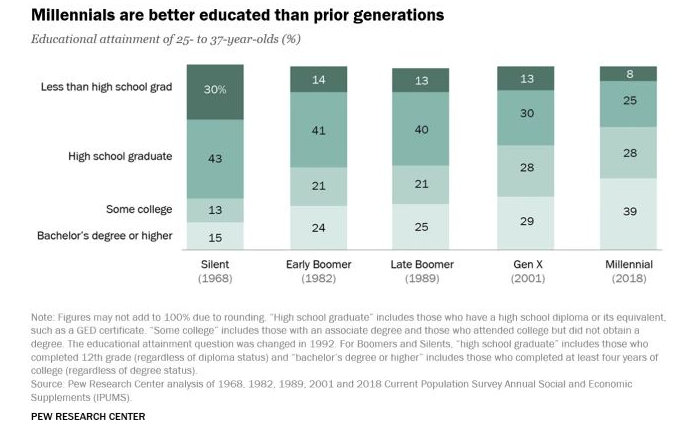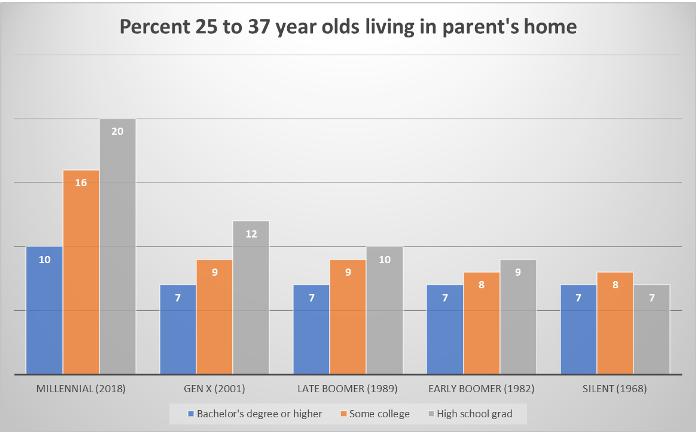Pew Research recently released a study of Millennials as young adults (aged 25 to 37) and compared their characteristics to the traits of the generations that came before them when they were the same age. This article looks at some of the differences the study uncovered.
The study primarily focuses on four age groupings: the silent generation (born 1928 to 1945), baby boomers (born 1946 to 1964), generation X (born 1965 to 1980) and Millennials (born 1981 to 1996). All monetary measures cited in the study are adjusted for inflation and generally quoted in 2017 dollars.
Education matters
The Pew data show that the earnings premium accruing to college graduates is higher for Millennials than for earlier generations. Millennials with a bachelor’s degree or higher reported an average annual income of $56,000 per year while high school graduates earned only $31,300 per year according to Pew. This compares with members of the silent generation who reported average income of $51,500 with a bachelor’s degree or higher while high school grad’s earned $37,100 per year.
Not only do Millennial college graduates earn relatively more than non-graduates, but the portion of the Millennial generation holding those college degrees is also higher than for previous generations. Fully 39 percent of Millennials have a bachelor’s degree or higher and only 8 percent have less than a high school diploma. For comparison, only 29 percent of Gen X’ers, 25 percent of baby boomers and 15 percent of the silent generation had a bachelor’s degree or higher at the same age.

Working and Living
While the caricature of the Millennial is of someone who changes jobs frequently, the Pew research indicates that they are no more prone to frequent job changes than were Gen X’ers at the same age. In each case, nearly 80 percent of 22 to 37 year-olds had been in their current job 13 months or more and nearly a third of 25 to 35 year-olds had been with their employer 5 years or more.
The other caricature of the Millennial is of someone living in his parent’s basement. There may be more truth to this impression. The Pew research shows that Millennials are indeed much more likely to be living at home as young adults than were earlier generations at the same age. This is illustrated in the following chart.

The study delves more deeply into education and marriage statistics. It discusses differences in ethnicity and voting patterns. It also describes how the make-up of the country’s population will change over time and speculates a bit about how Generation Z will turn out. The full study can be found here.
















